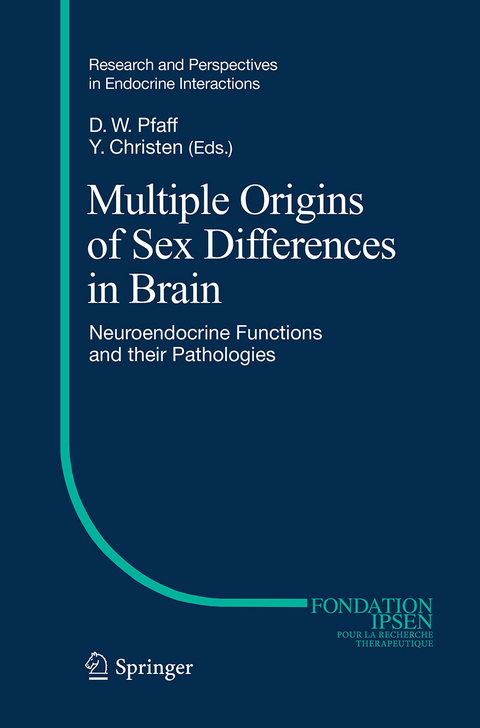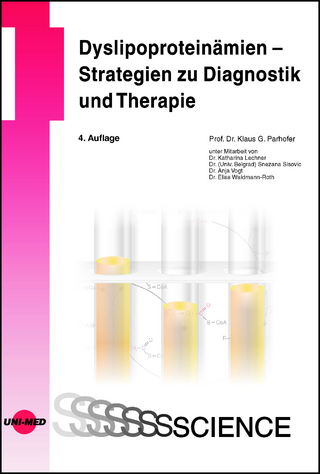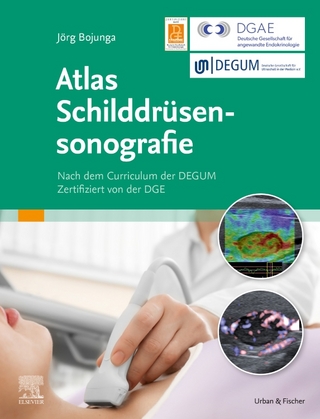
Multiple Origins of Sex Differences in Brain
Springer Berlin (Verlag)
978-3-662-52320-9 (ISBN)
In theoretical terms, sex differences in brains and behaviors of laboratory animals offer the possibility of fascinating scientific studies on a range of molecular phenomena such as genomic imprinting, DNA methylation, chromatin protein modification, non-coding DNA, potentially resulting in important neuroanatomical and neurochemical sex differences in the brain. Such sex differences could arise consequent to exposures to testosterone early in development, or to other effects deriving from the Y chromosome. However, this general subject has been treated with much hyperbole. Historically, sex differences were assumed to be present where they did not really exist, e.g. with respect to mathematics, executive leadership, etc. etc. Under what circumstances do we really care about sex differences in brain and behavior? These circumstances concern human maladies whose diagnoses are much different between boys and girls, or between women and men. Prominent examples discussed in this volume include autism, attention deficit hyperactivity disorders and congenital adrenal hyperplasia. In fact, infant boys are more susceptible than infant girls to a variety of disorders that arise early in development. This volume then ends with a consideration of effects of estrogenic hormones on the injured brain, and their roles as protective agents.
Donald PFAFF (The Rockefeller University, New York, USA) Hormone-dependent chromatin modifications regulating sexually differentiated animal behaviour.- Eric B. KEVERNE (University of Cambridge, Cambridge, UK) Importance of genomic imprinting in the evolution and development of the maternal brain.- Catherine DULAC (Harvard University & Howard Hughes Medical Institute, Cambridge, USA) Sex battles in the brain: genomic imprinting in the developing and adult CNS.- Javier DE FELIPE (Universidad Politécnica de Madrid, Madrid, Spain) Gender differences in human cortical synaptic density.- Melissa HINES (University of Cambridge, Cambridge, UK) Androgenic influences on human neurobehavioral development: outcomes and mechanisms.- Simon BARON-COHEN (Cambridge University, Cambridge, UK) The foetal androgen theory of autism.- Francesca DUCCI (King's College, London, UK) Genetic variation within serotonin genes,hormones, and aggression.- Jay GIEDD (National Institute of Mental Health, Bethesda, USA) Does size matter? Sex differences in the developing brain.- Jill GOLDSTEIN (Brigham and Women's Hospital and Harvard Medical School, Boston, USA) Fetal hormonal programming of the brain: Implications for understanding sex differences in depression and risk for cardiovascular disease.- James SWANSON (University of California, Irvine, USA) Attention deficit hyperactivity disorders: factors contributing to sex differences in recognition and treatment with stimulant medication .- Phyllis W. SPEISER (Hofstra North Shore LIJ School of Medicine, New York, USA) Congenital adrenal hyperplasia and related disorders: Neuroendocrine, behavioral and cognitive implications.- Phyllis WISE (University of Washington, Seattle, USA) Estrogens: protective or risk factors in the injured brain
| Erscheinungsdatum | 27.06.2016 |
|---|---|
| Reihe/Serie | Research and Perspectives in Endocrine Interactions |
| Zusatzinfo | XIII, 181 p. |
| Verlagsort | Berlin |
| Sprache | englisch |
| Maße | 155 x 235 mm |
| Gewicht | 308 g |
| Themenwelt | Sachbuch/Ratgeber ► Natur / Technik ► Naturführer |
| Medizinische Fachgebiete ► Innere Medizin ► Endokrinologie | |
| Medizin / Pharmazie ► Medizinische Fachgebiete ► Neurologie | |
| Studium ► 1. Studienabschnitt (Vorklinik) ► Biochemie / Molekularbiologie | |
| Studium ► 2. Studienabschnitt (Klinik) ► Humangenetik | |
| Naturwissenschaften ► Biologie ► Humanbiologie | |
| Schlagworte | attention deficit hyperactivity disorders • Autism • chromatin modifications • epigenetics • fetal hormonal programming • genomic imprinting |
| ISBN-10 | 3-662-52320-5 / 3662523205 |
| ISBN-13 | 978-3-662-52320-9 / 9783662523209 |
| Zustand | Neuware |
| Haben Sie eine Frage zum Produkt? |
aus dem Bereich


